BY SULIN NGO
PHOTOGRAPHY BY JP LEONG
On June 14, over one hundred guests from across the country registered to join Urban Consulate for an advanced digital screening of Liberation Story, the second episode of a collaborative series on Cincinnati’s PBS station, CET.
Liberation Story was created in observance of Juneteenth – and in recognition that freedom is not equal for all – with host Naimah Bilal inviting audiences to navigate the ongoing quest for liberation from oppressive systems, mindsets and cultures.
Through the lens of Black changemakers in Cincinnati, the conversation explored what true freedom looks like for our communities — and how to expand our collective potential.
Juneteenth Past & Future
Short for "June 19th," the annual (and now federally recognized) holiday commemorates the day enslaved Black people in Texas were informed they had been freed — nearly three years after the Emancipation Proclamation.
It is especially meaningful for liberation to be explored here in Cincinnati, a city whose greatest natural landmark — the Ohio River — was a significant hurdle to cross for Black Americans seeking freedom.
To start the conversation, Bilal offered some situational and historical context:
“The Ohio River reflects the natural beauty of our region. It also emanates haunting echoes of our national history. It's a channel of leisure. It's a channel of commerce. But, not so long ago for some Americans, it was a borderland, a line of demarcation between slavery in the South, and a hope for freedom in the North. For Black people living in America more than a century and a half ago, crossing this river not only meant escaping physical bondage. Through this heroic and dangerous act, they were also reclaiming their full humanity,” said Bilal.
Cincinnati was a stop on the Underground Railroad. Since then, it has also had a long legacy of redlining and gentrification.
Against that backdrop, Bilal asked guests, “What does liberation mean to you?”
Liberation Through Healing
Dr. Tia Sherèe Gaynor, whose research is centered in social justice issues of equity, said that liberation is “the ability to be one’s authentic self,” free from external social controls and factors like white supremacy, capitalism, heteronormativity and homophobia.
In order to do that, we must realize that "healing is at the core of truly being free and liberated — not just for Black people, but for everyone," she said. "One of the very foundational components of that process is truth-telling. We have to be able to have open conversations. We have to be able to hold multiple truths at the same time.”
To give more people tools to do this, Dr. Gaynor started the new Center for Truth, Racial Healing & Transformation at the University of Cincinnati, which "uses research, learning, and action to provide space for healing the harm caused by the matrices of oppression." Resources they offer include ally trainings and their downloadable Race & Racism in Cincinnati Toolkit, which includes discussion guidelines, suggested reading, quizzes and action steps for anyone looking to advance racial healing in their work or community.
Liberation Through Expression
In a moving personal account, artist Michael Coppage shared how he defied expectations throughout his life—by pursuing the arts rather than sports, by leaving his neighborhood in the South Side of Chicago, by speaking his mind through art. And in doing so, shaped his idea of freedom.
“Liberation for me is the freedom to navigate the world without others’ projections, without others expecting something negative to be born from just your presence,” said Coppage. “Liberation is the works of art that depict the Black experience without fear of retribution, physical harm or persecution.”
He helps pave the way towards liberation through his own art, which facilitates discussions and tells stories about Black people to promote lasting societal change. Coppage’s “BLACK BOX” mural, currently on display at the Cincinnati Contemporary Art Center, is part of a 5-part community impact project aimed at demystifying black men and creating authentic experiences that replaced bias and preconceived notions.
Liberation Through Justice
For Fanon Rucker, an attorney and retired judge, the idea of “liberation” was instilled in him at a young age, he said, through the choice of his name and an upbringing that encouraged him to be comfortable with being himself.
“Liberation, particularly when we talk about Black liberation, it means to me to not be afraid to be who you are in your Blackness,” said Rucker.
“But what I encourage about us being free and being liberated as a people has to in some way focus on the justice system, that big monstrosity of an intentional oppressor,” he continued. “The liberation of our people has to mean the dismantling and the reshaping of the justice system for it to have different objectives and endgames. Because the system is not broken. It operates like it was intended to."
Rucker has pursued this through his legal work, including participating in early reform efforts to bring Community Oriented Policing to the Cincinnati Police Department and the Fresh Start Expungement Clinic to Hamilton County Public Defender’s Office.
Liberation Through Love
“Liberation and freedom are multi-dimensional. It’s spiritual. It’s mental. It’s physical. It’s financial. It’s ‘create creatively,’” according to AprinasRevolutionaryLove. It’s practicing what she calls “revolutionary, radical love,” which is difficult to do, “because it means you have to love, trust and respect yourself, and then you have to open yourself up to do that with others,” she said. “Make room for other stories, other people’s truths.”
Despite the burdens of racism and white supremacy, Aprina believes wholeheartedly that “love can be the cure.” She sees the evidence in her work as a musical artist, when she can stir thousands of people to move to a single beat. “If one person gets up there and they start leading something like this, and we have this huge group of people who are doing this particular thing – it’s contagious. You can’t fight it.”
AprinasRevolutionaryLove leads by example through her work, which combines music and communal activism. Her workshops include more than a lesson in dance and music, but also an encouraging message and a dose of radical, revolutionary love.
What Does Liberation Mean To You?
Thank you for joining us on this exploration of liberation from oppressive mindsets, cultures and systems. Our guests offered approaches to finding freedom in their own lives and city; now we invite you to imagine, too:
What is your liberation story?
What could your city be if we were all truly free?
Some responses submitted by viewers:
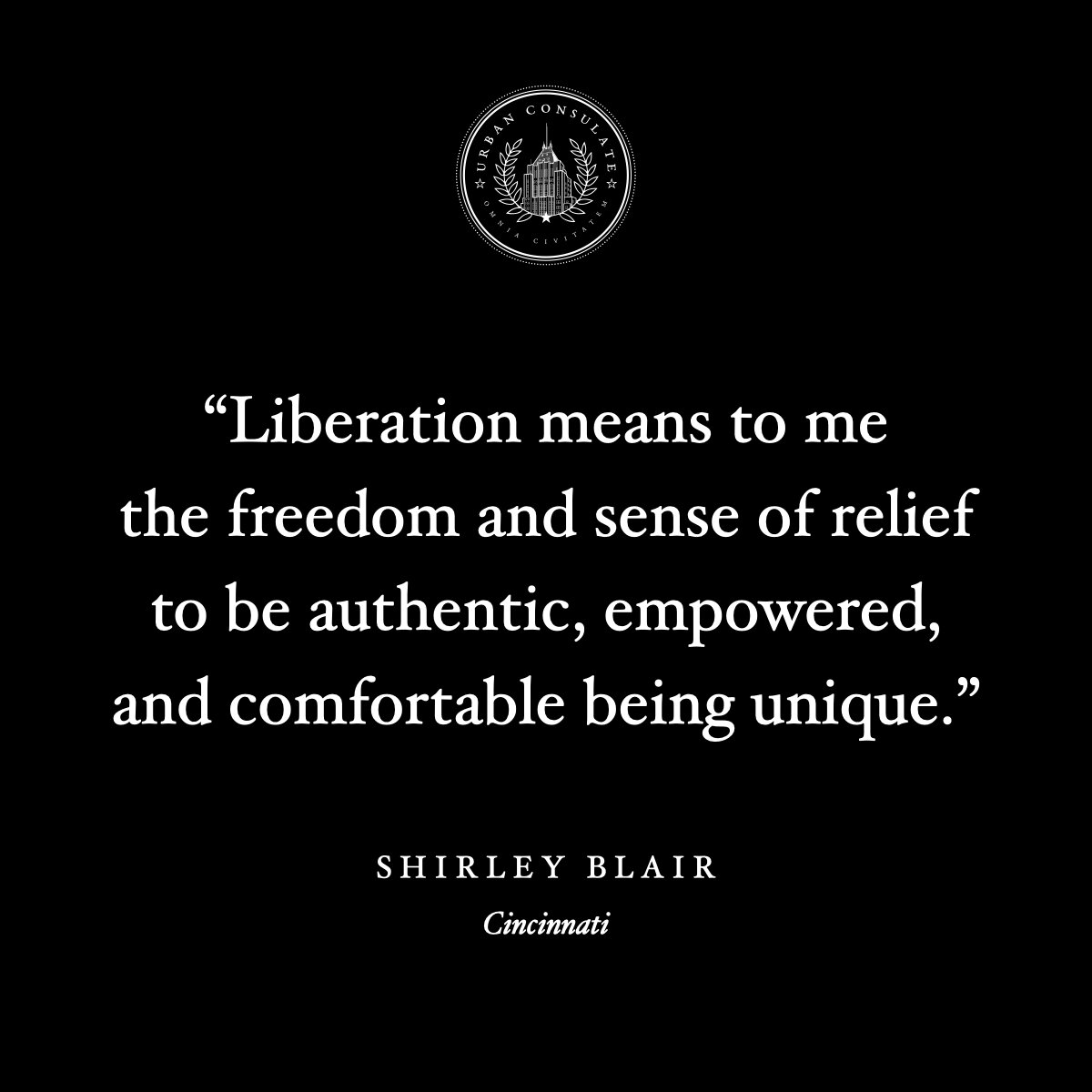
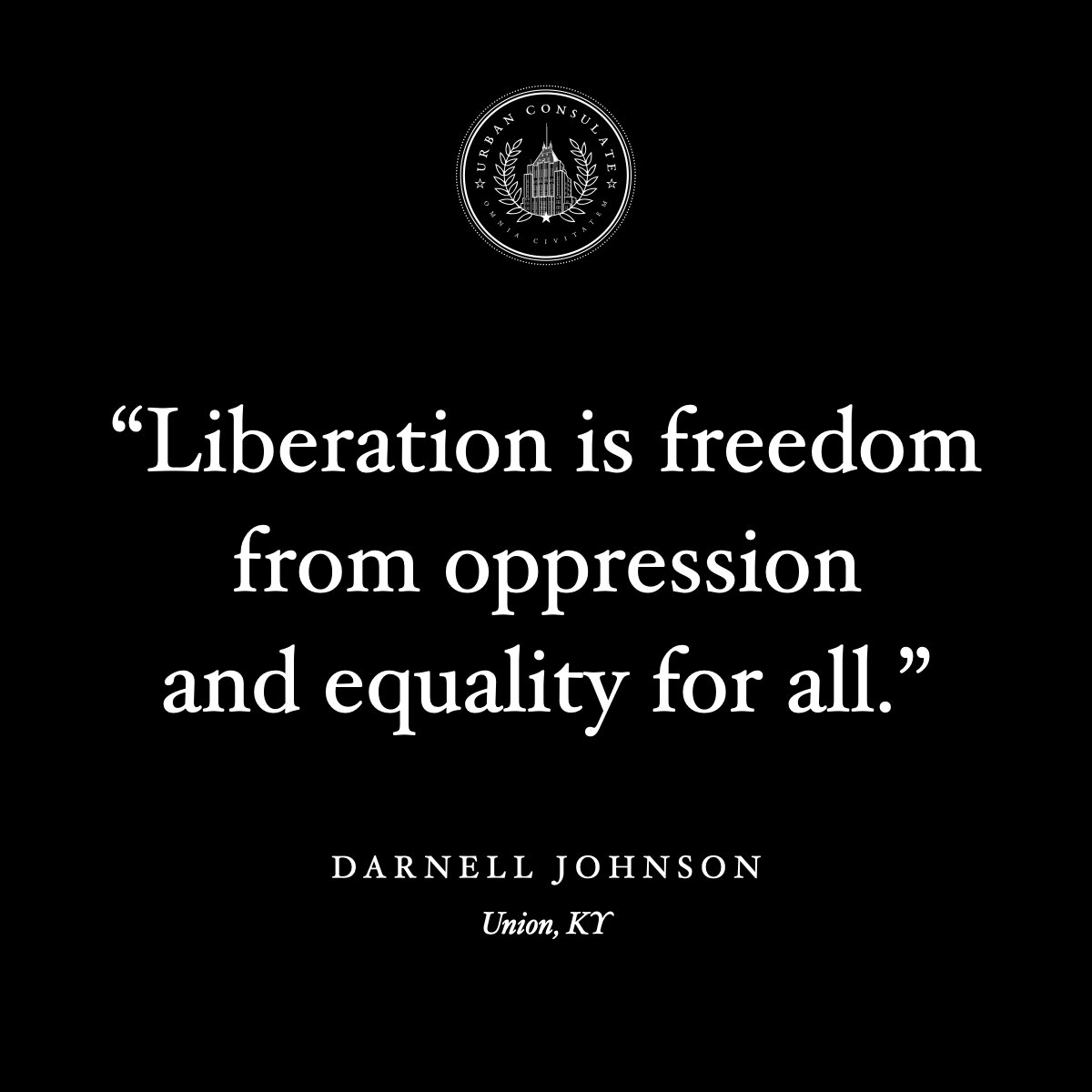
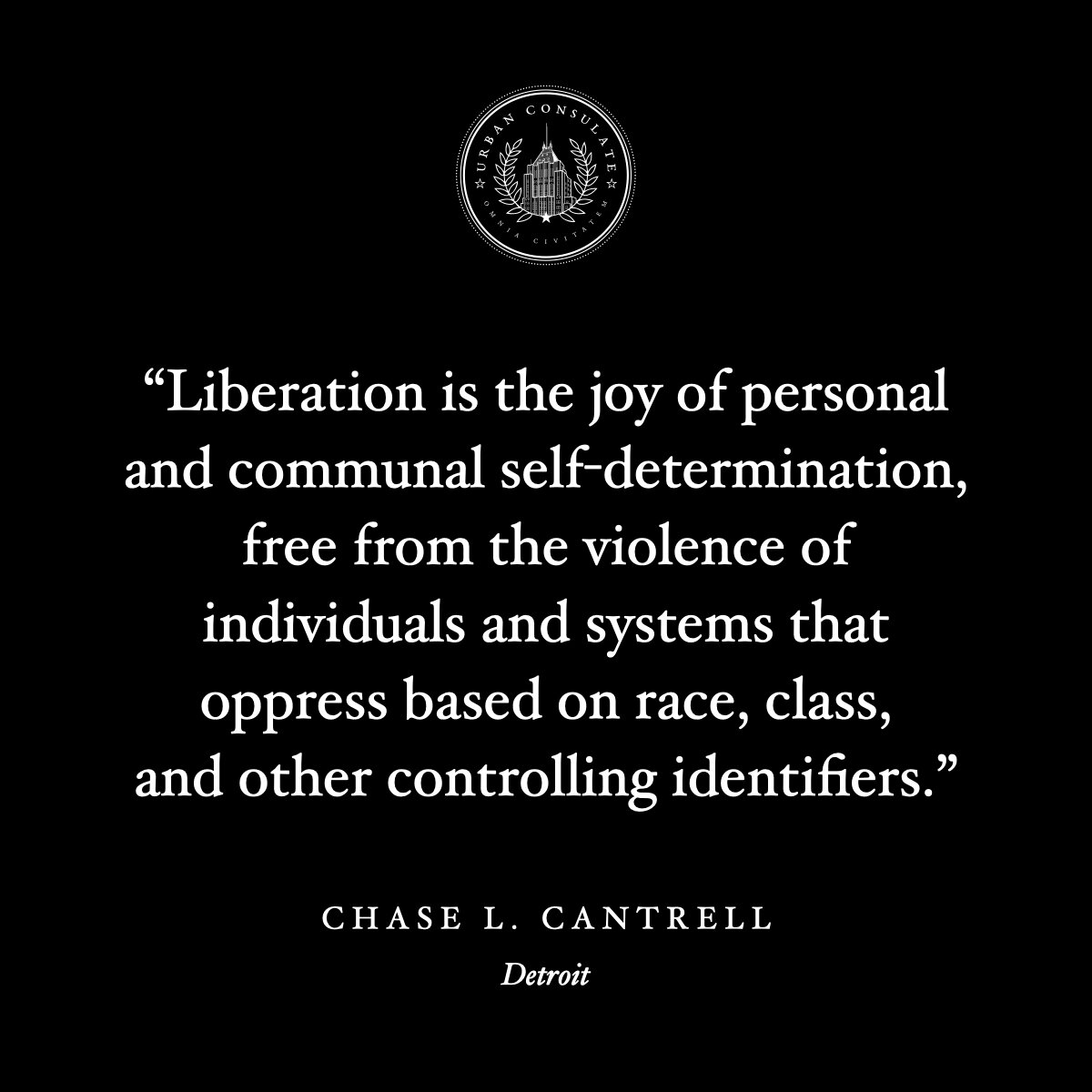
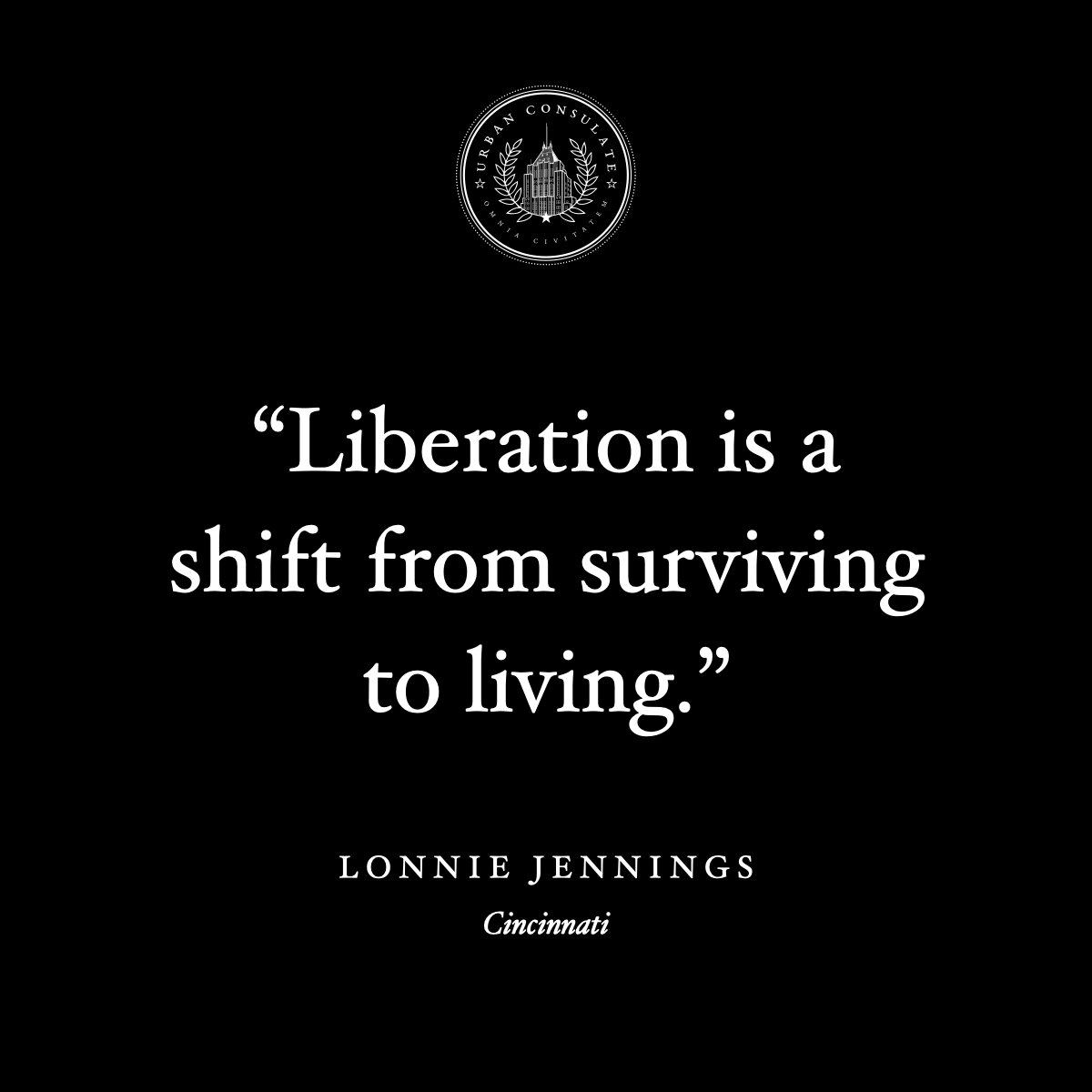
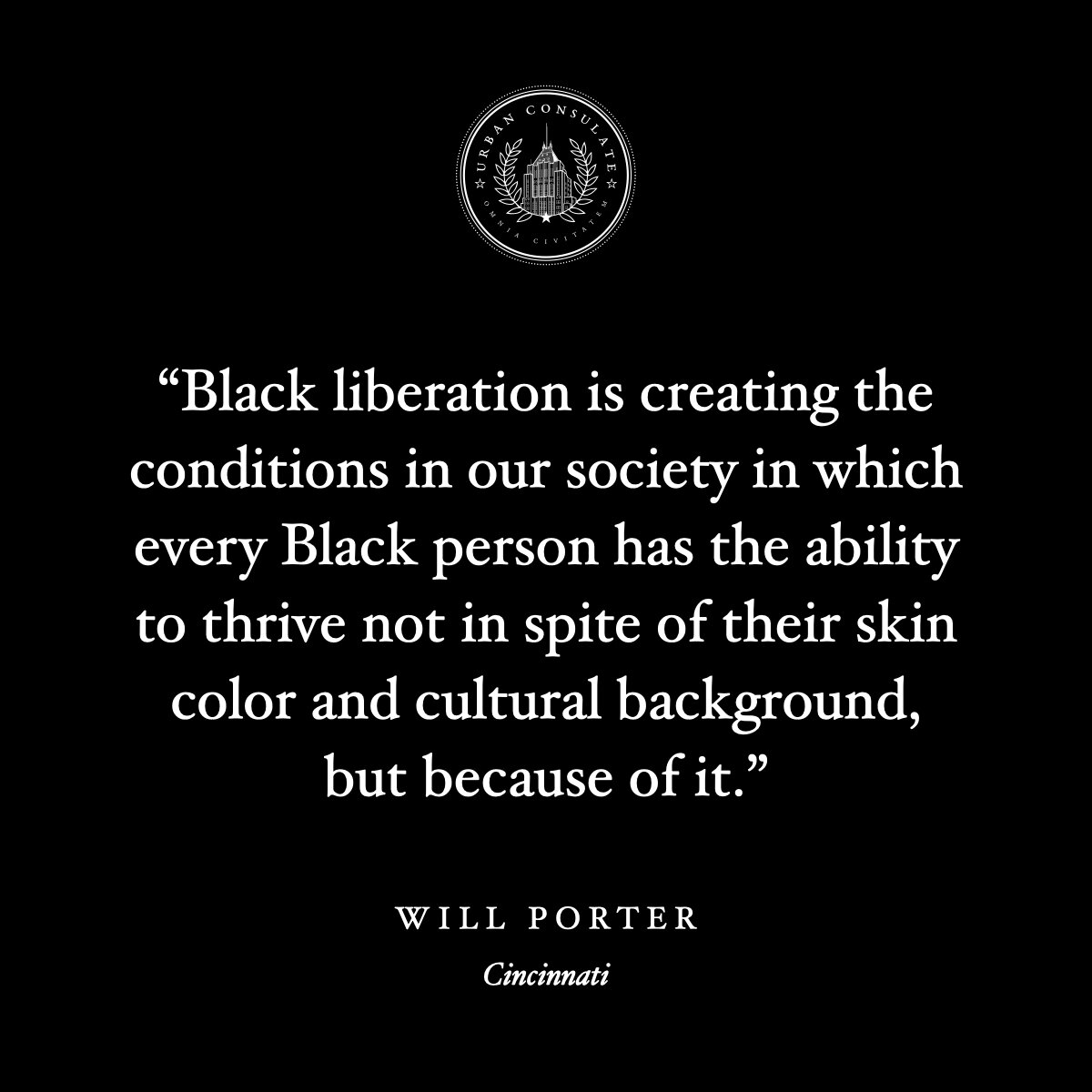
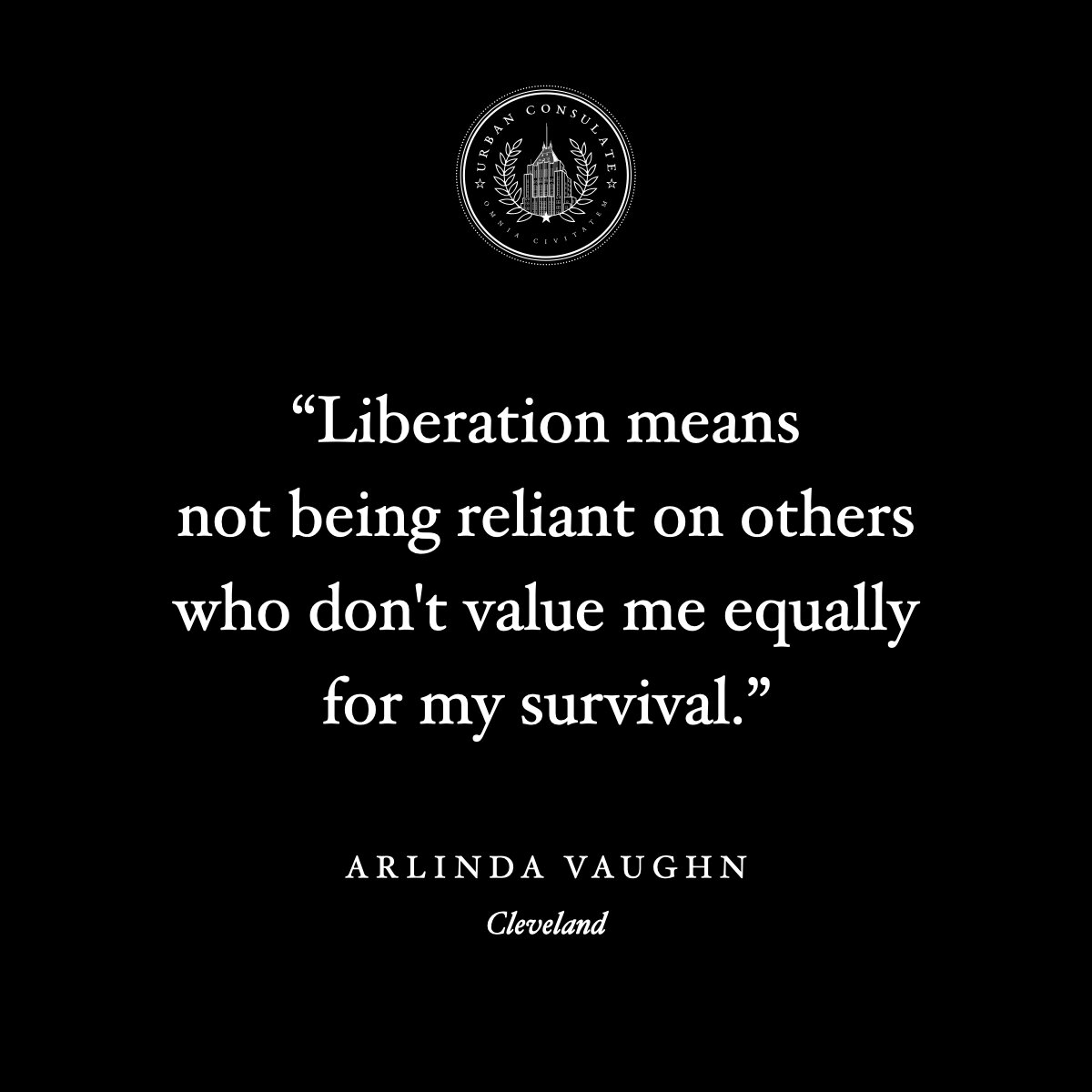
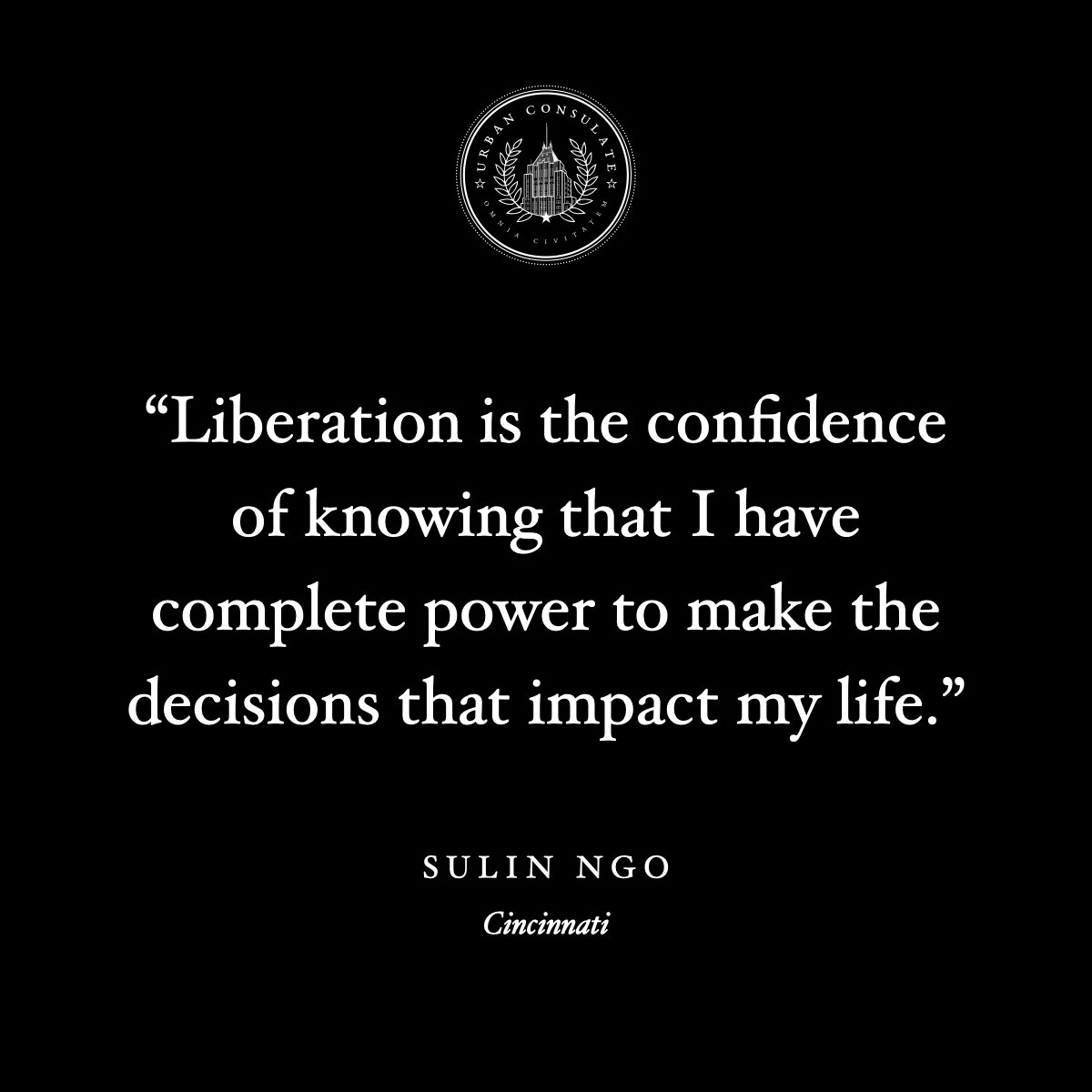
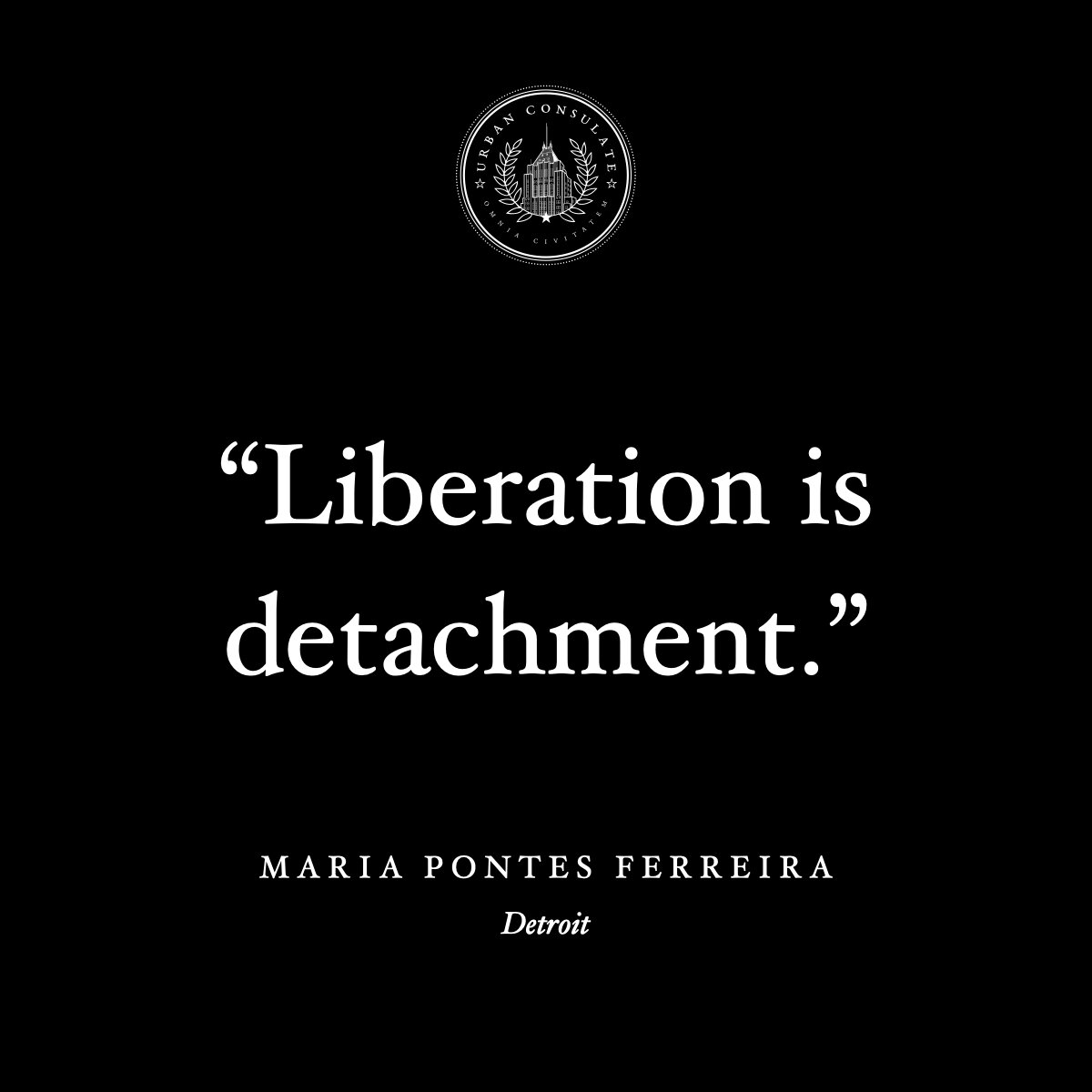
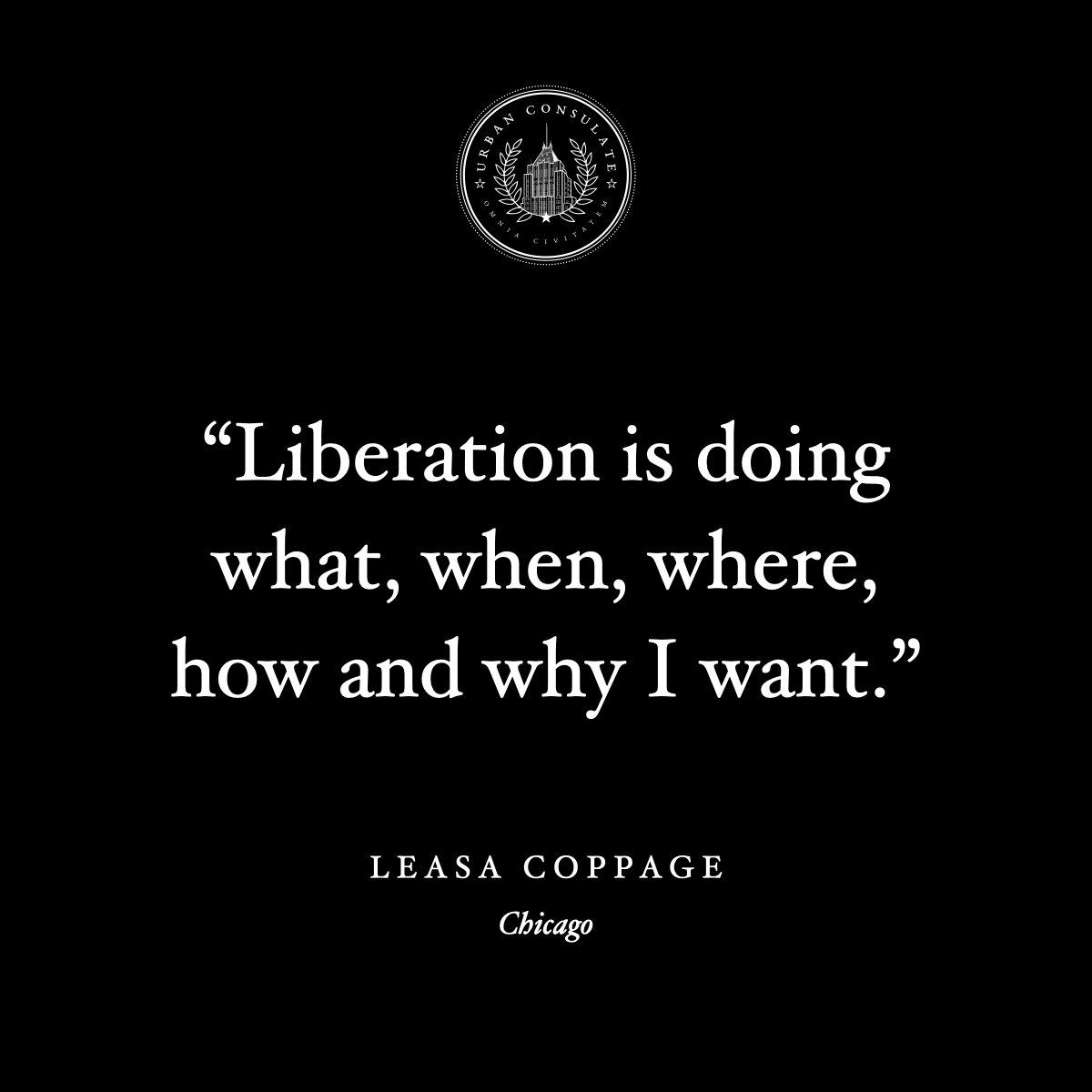
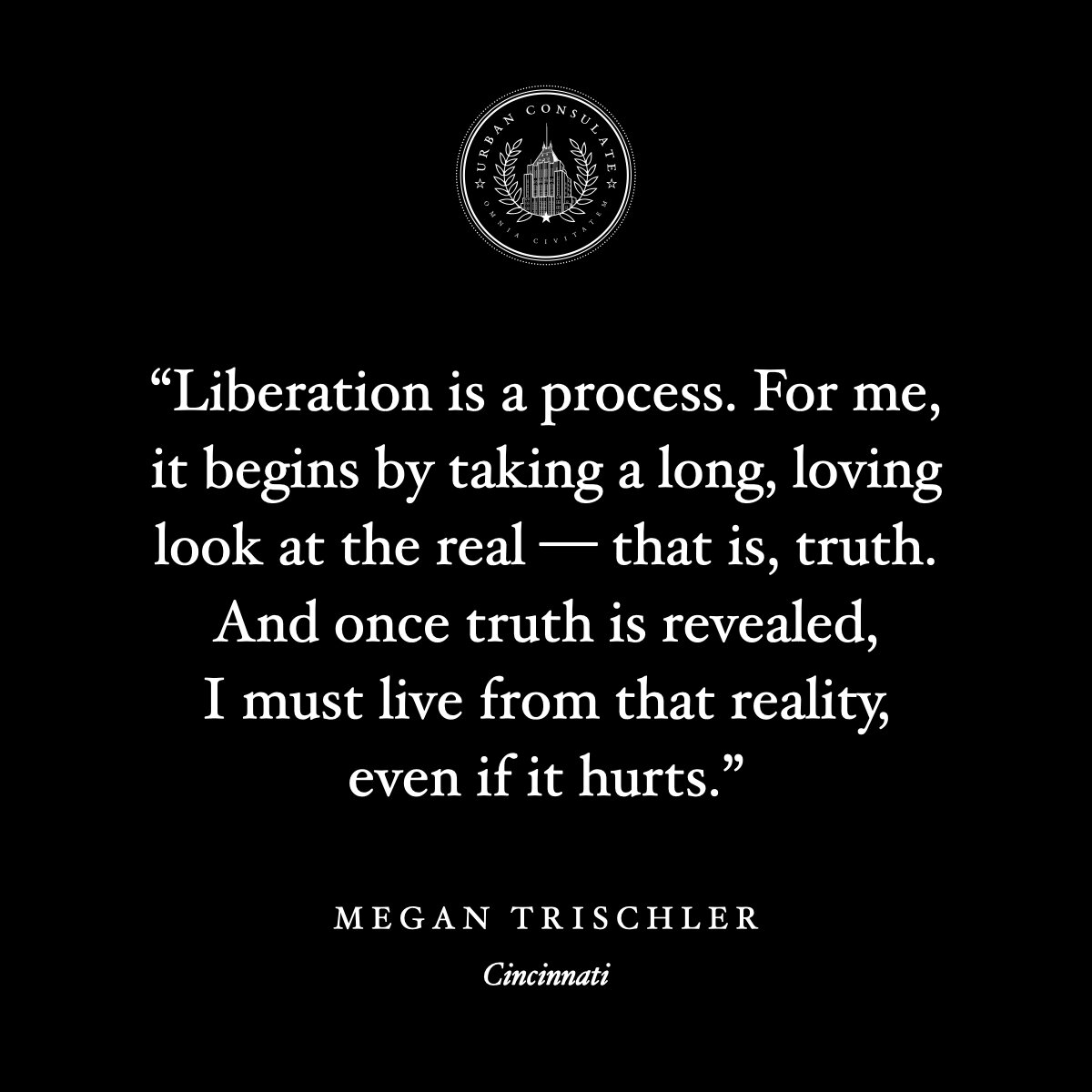
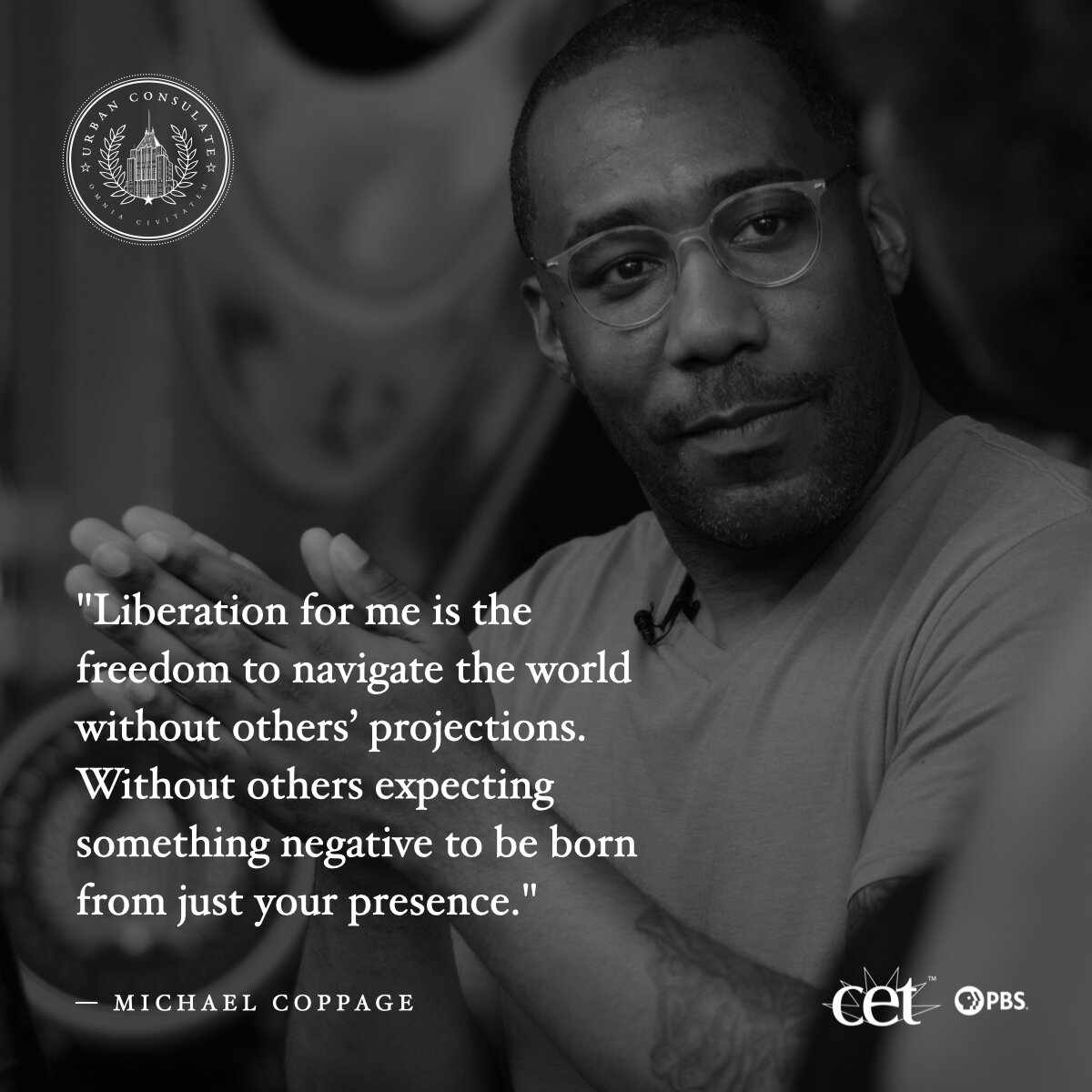
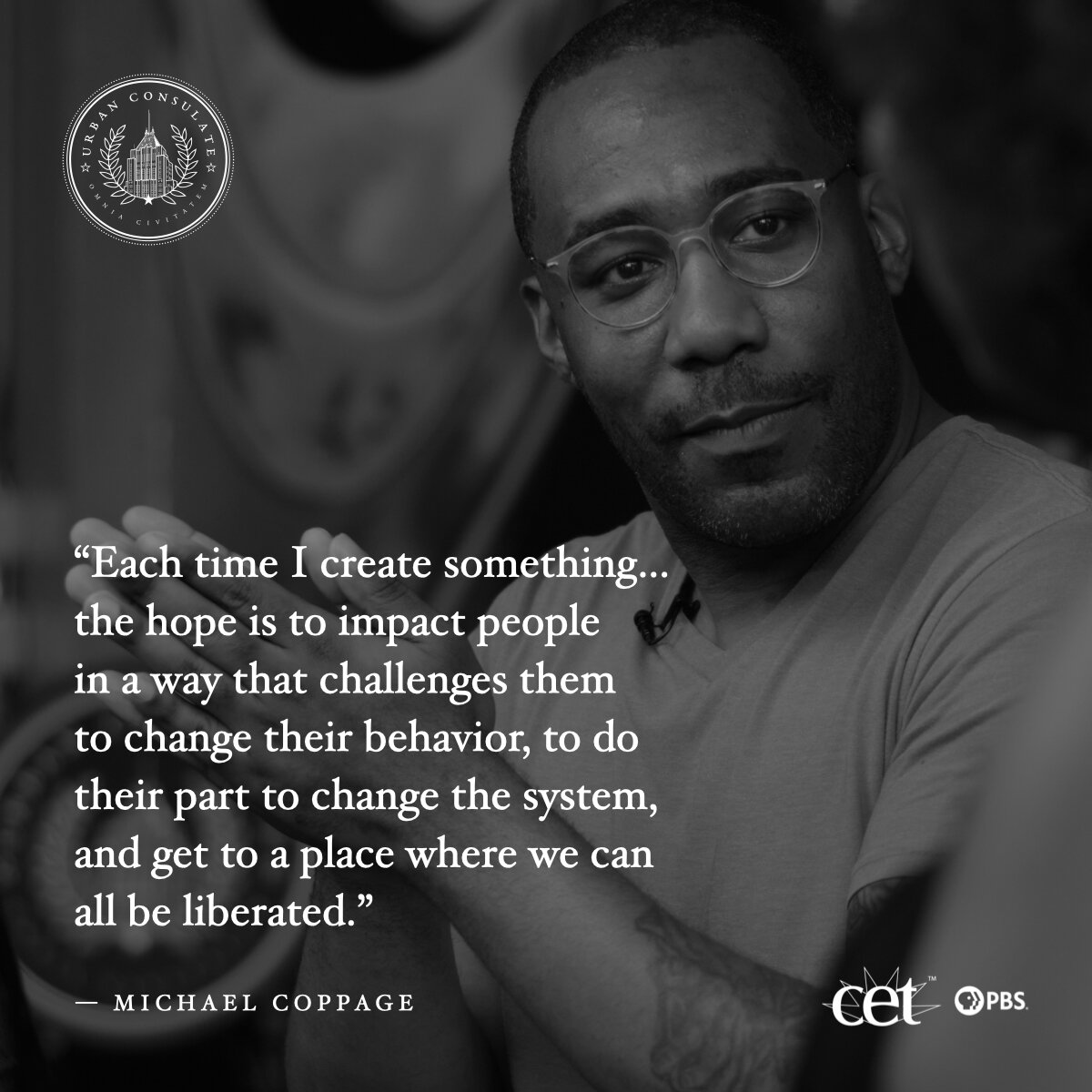
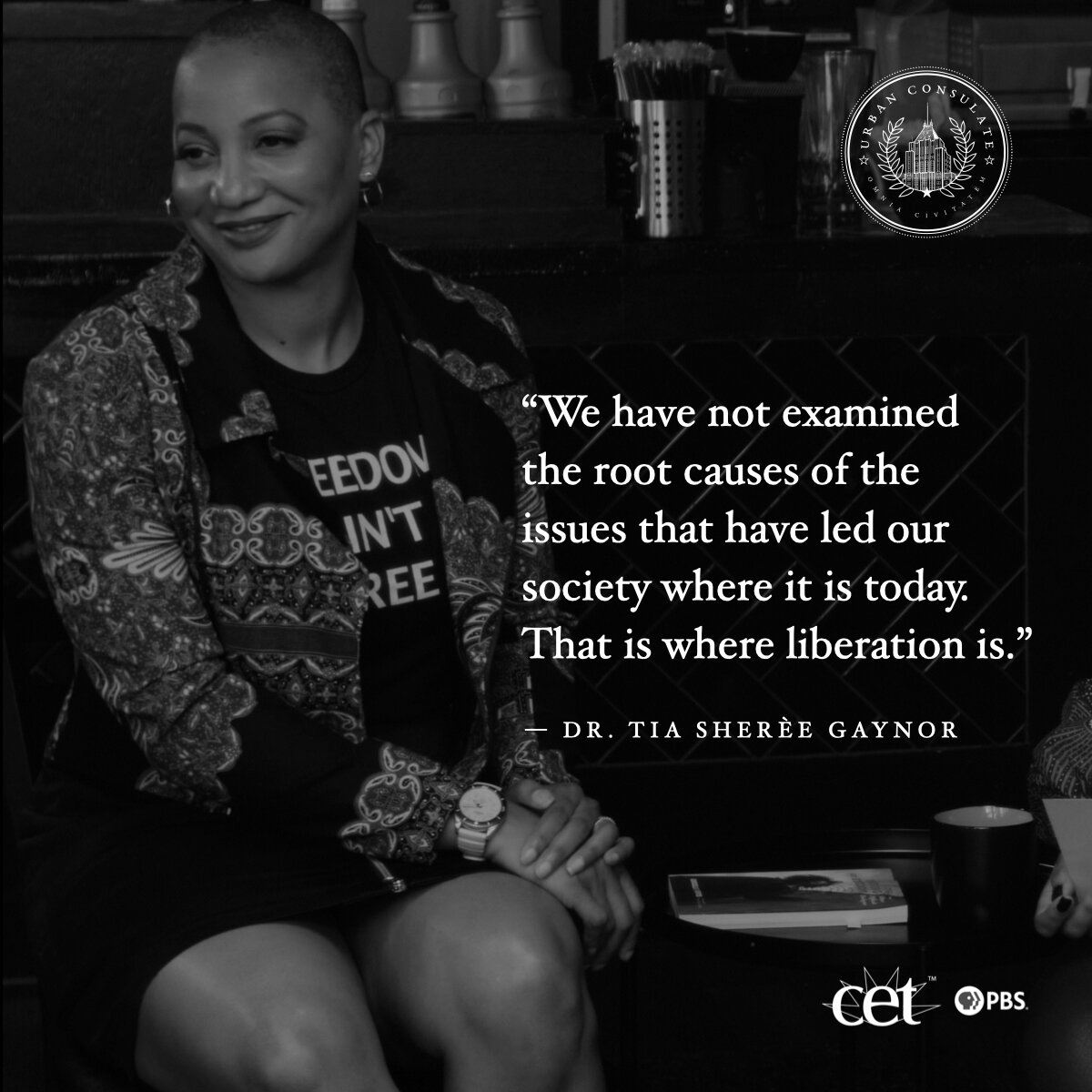
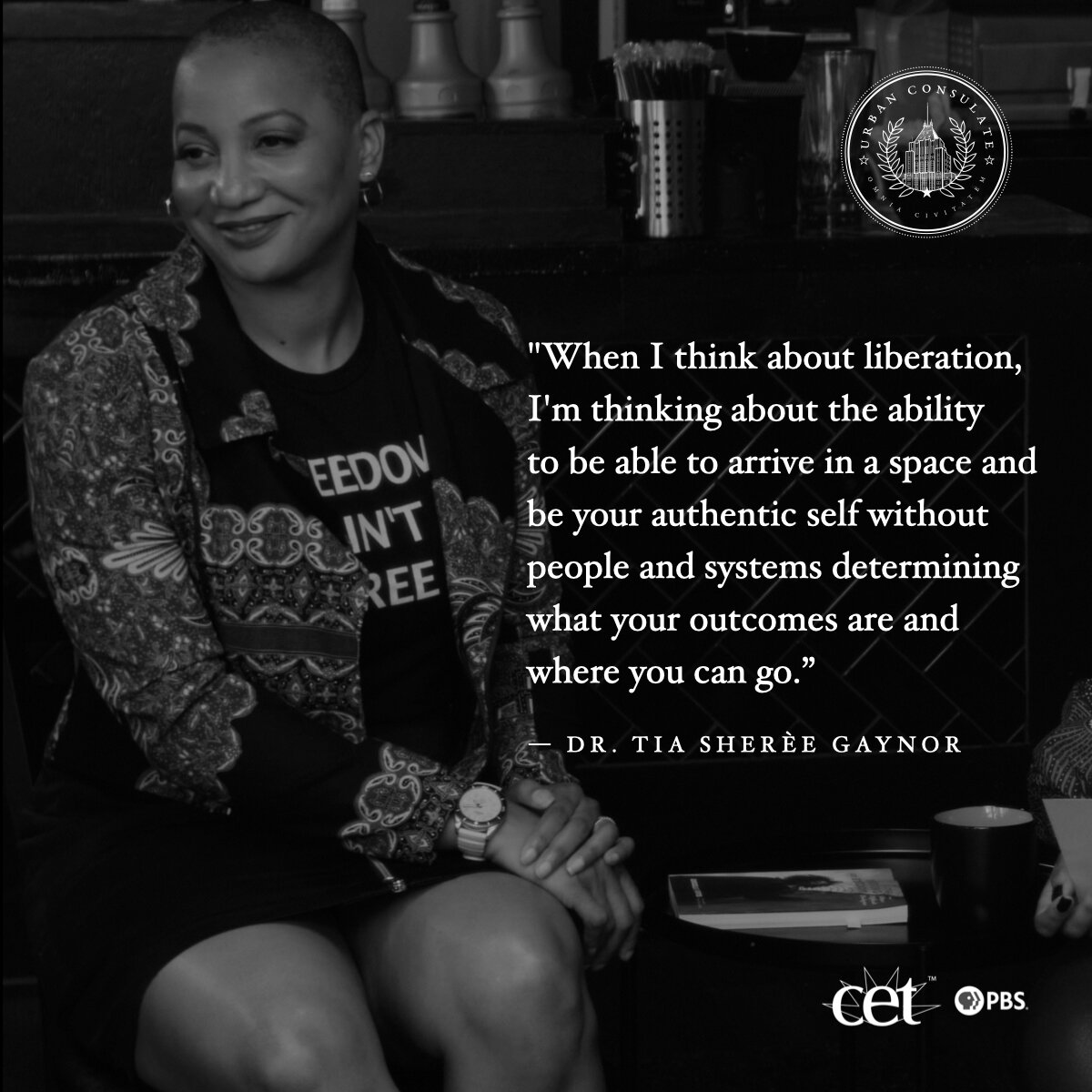
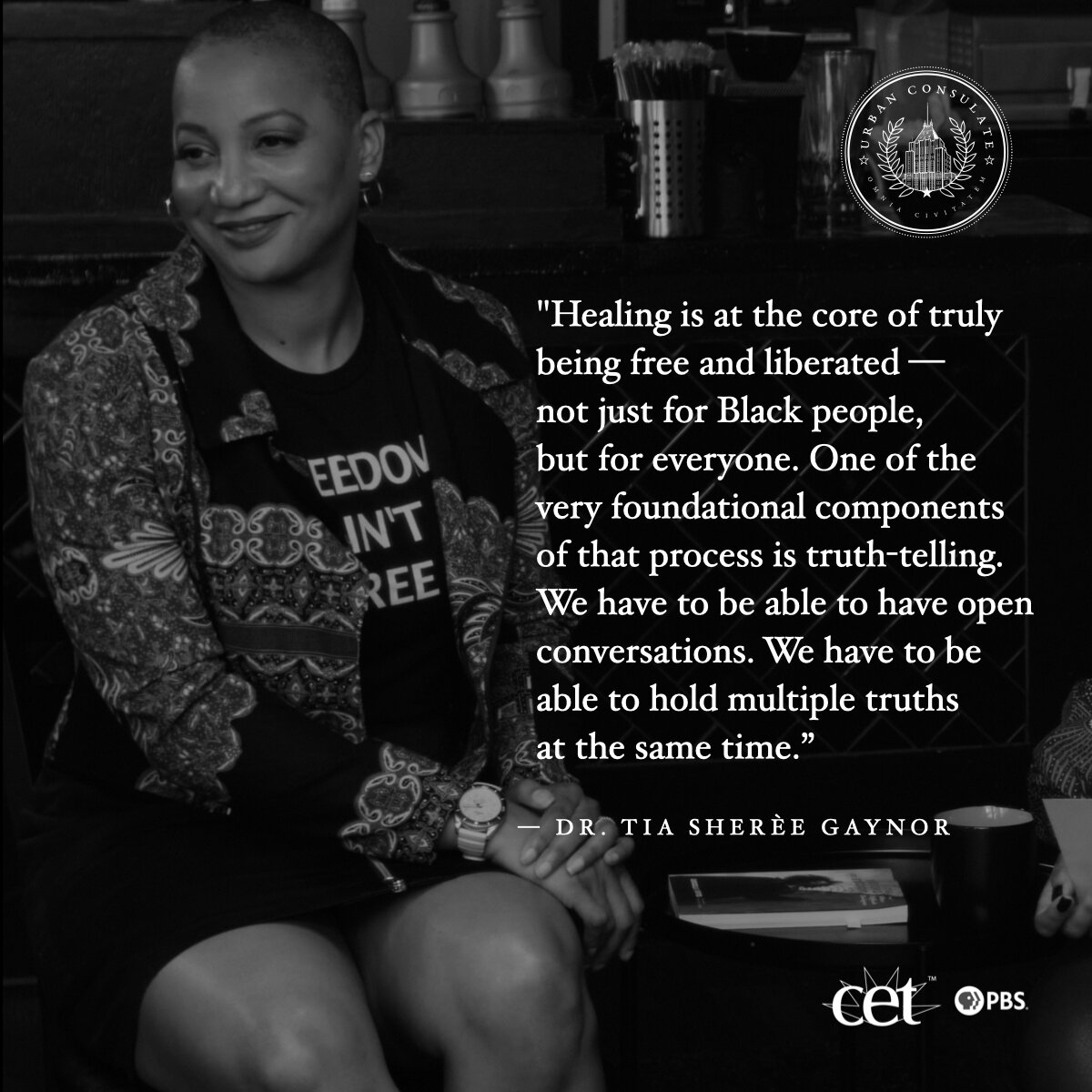
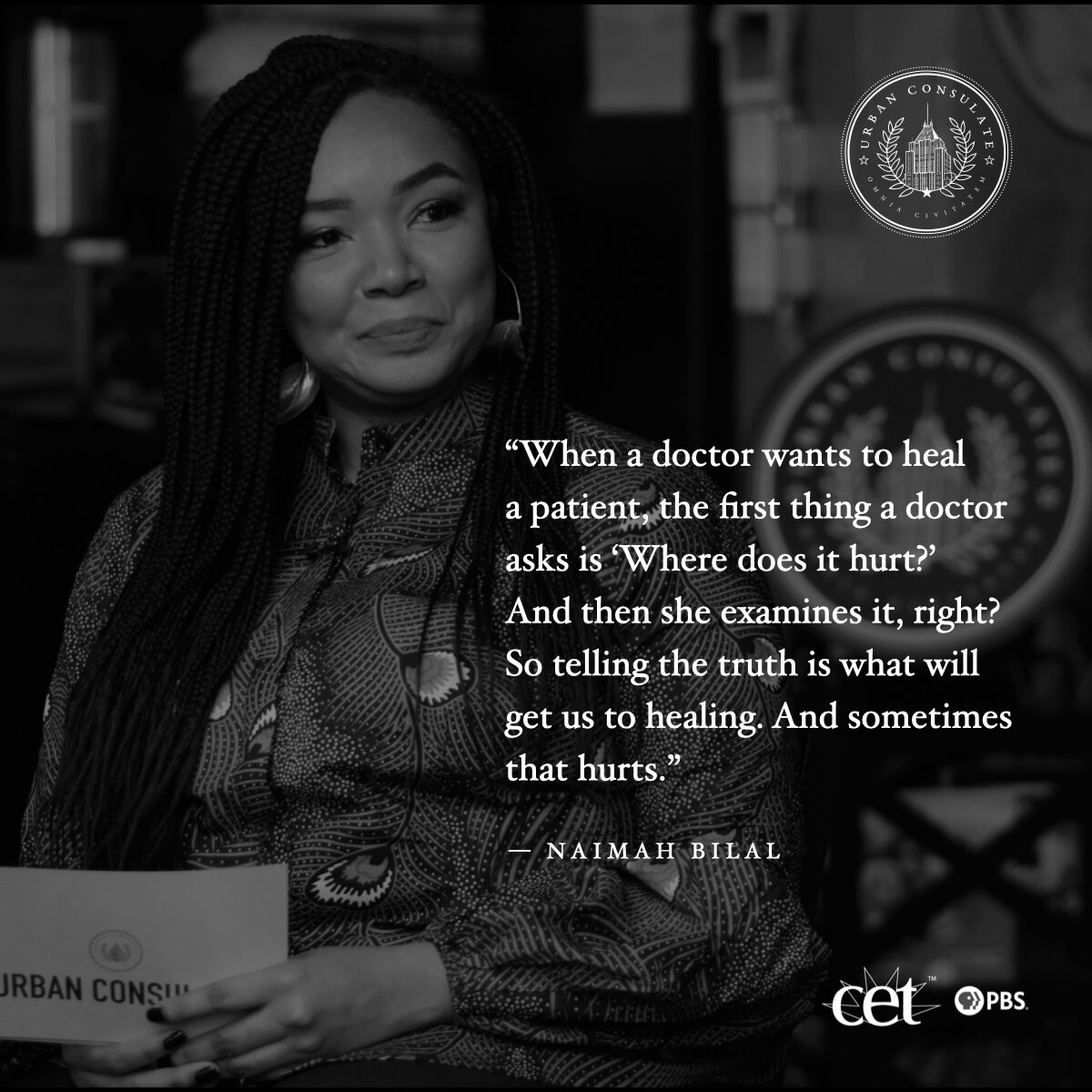
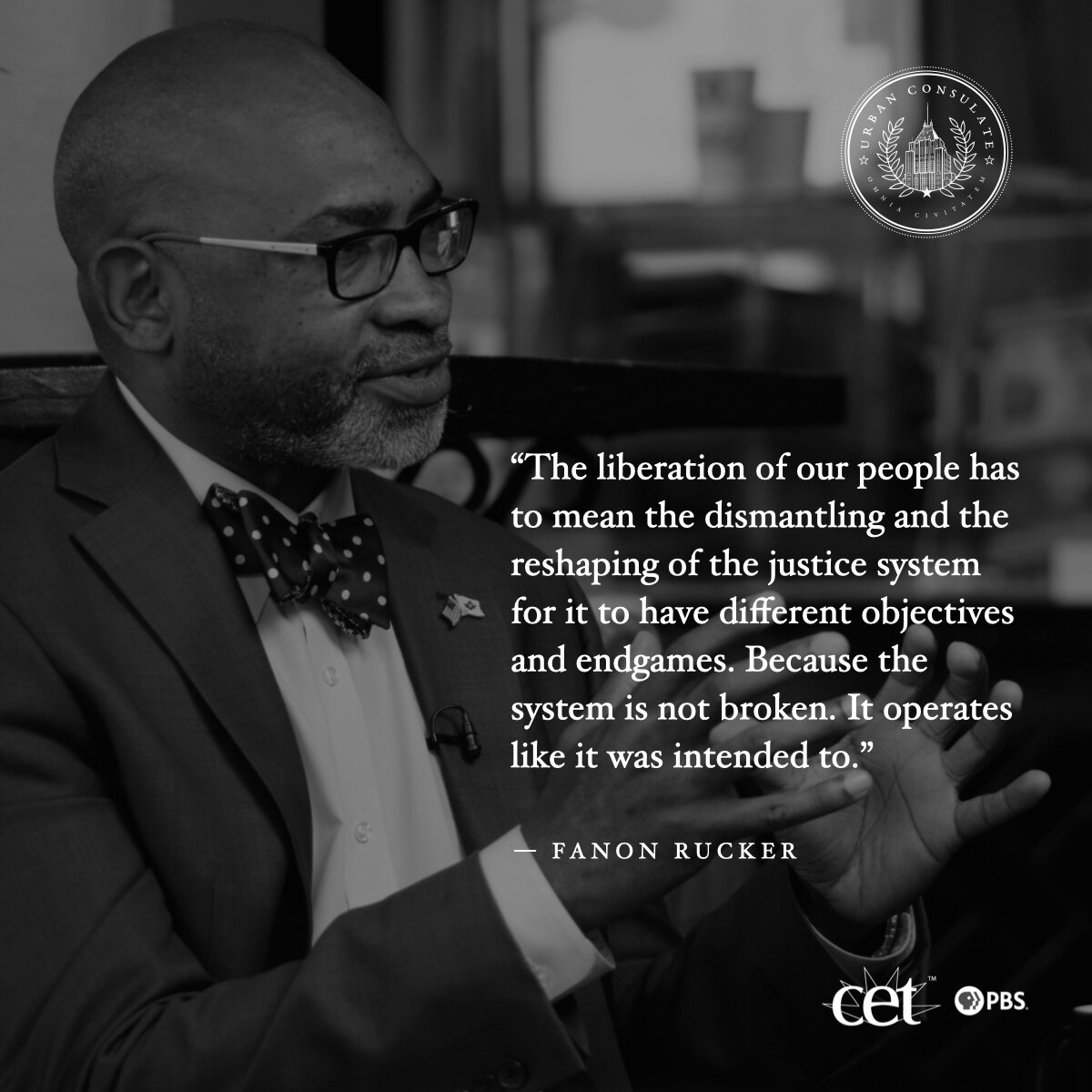
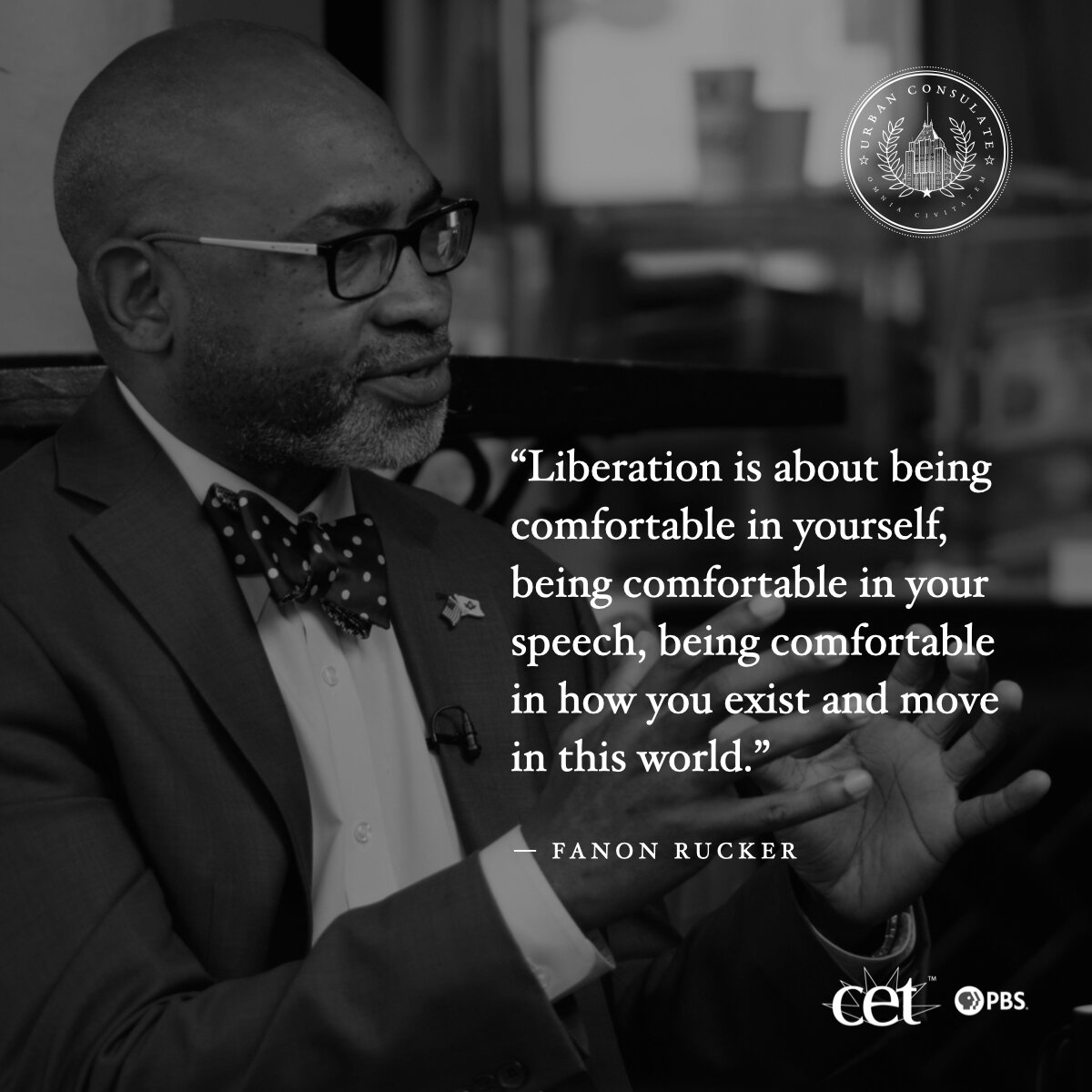
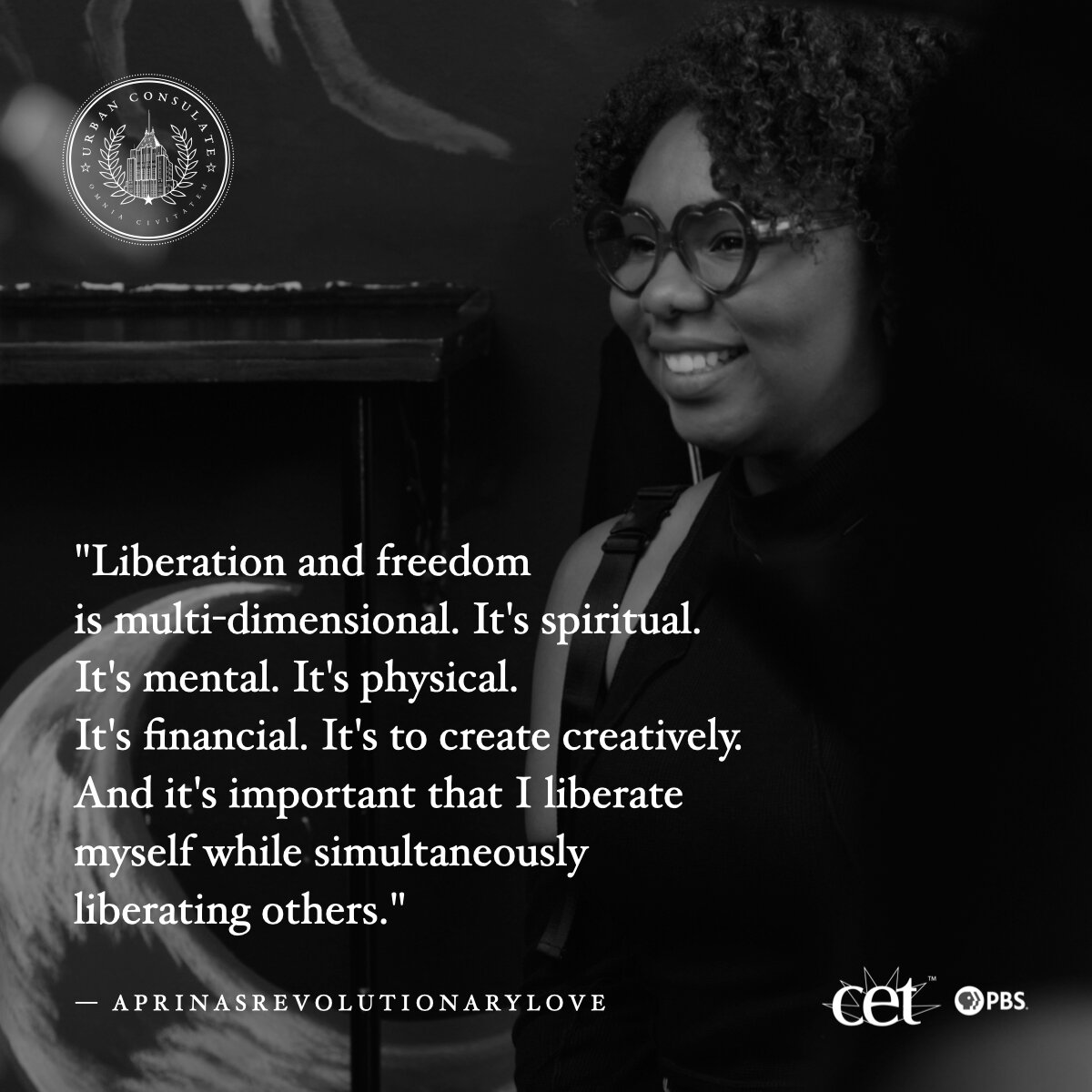
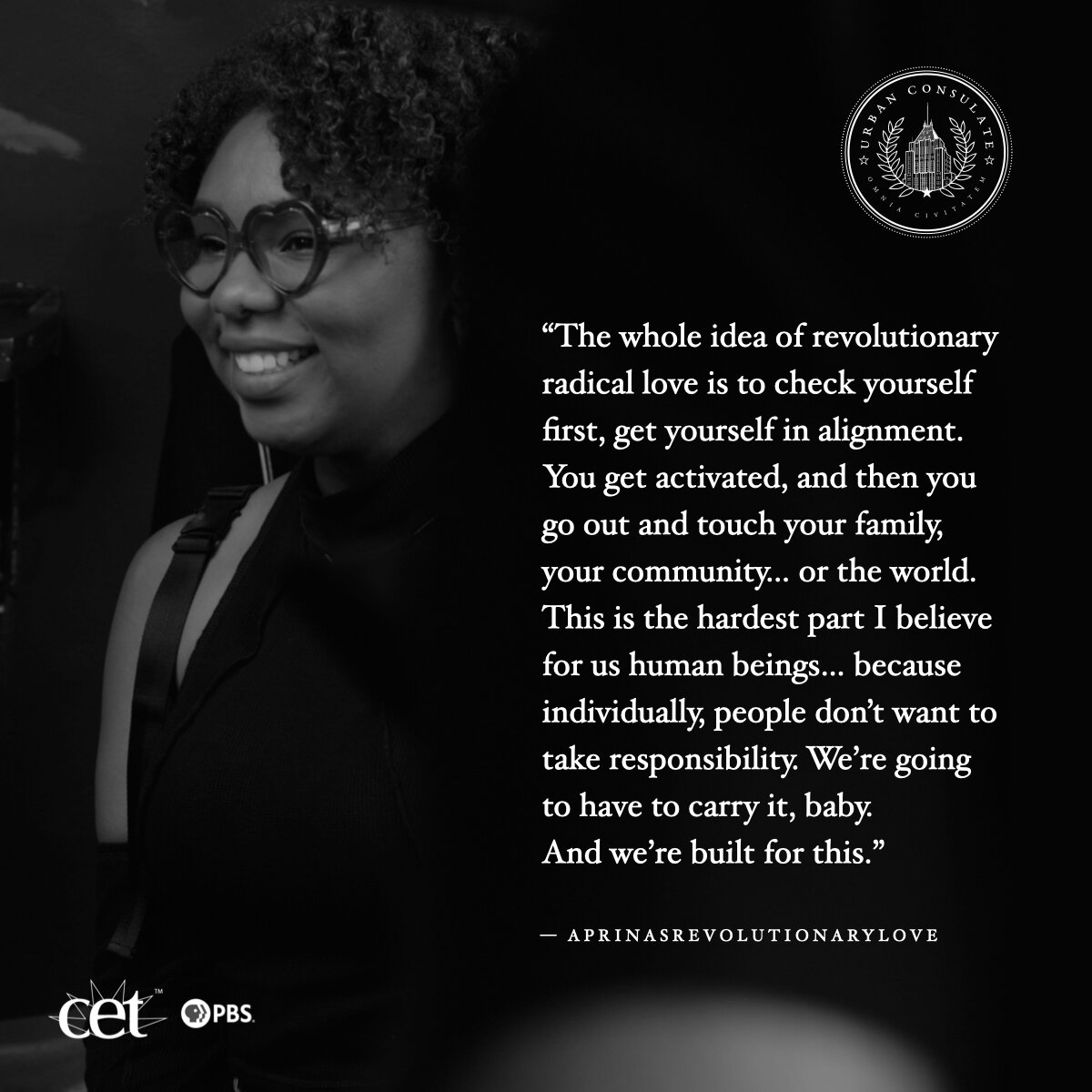
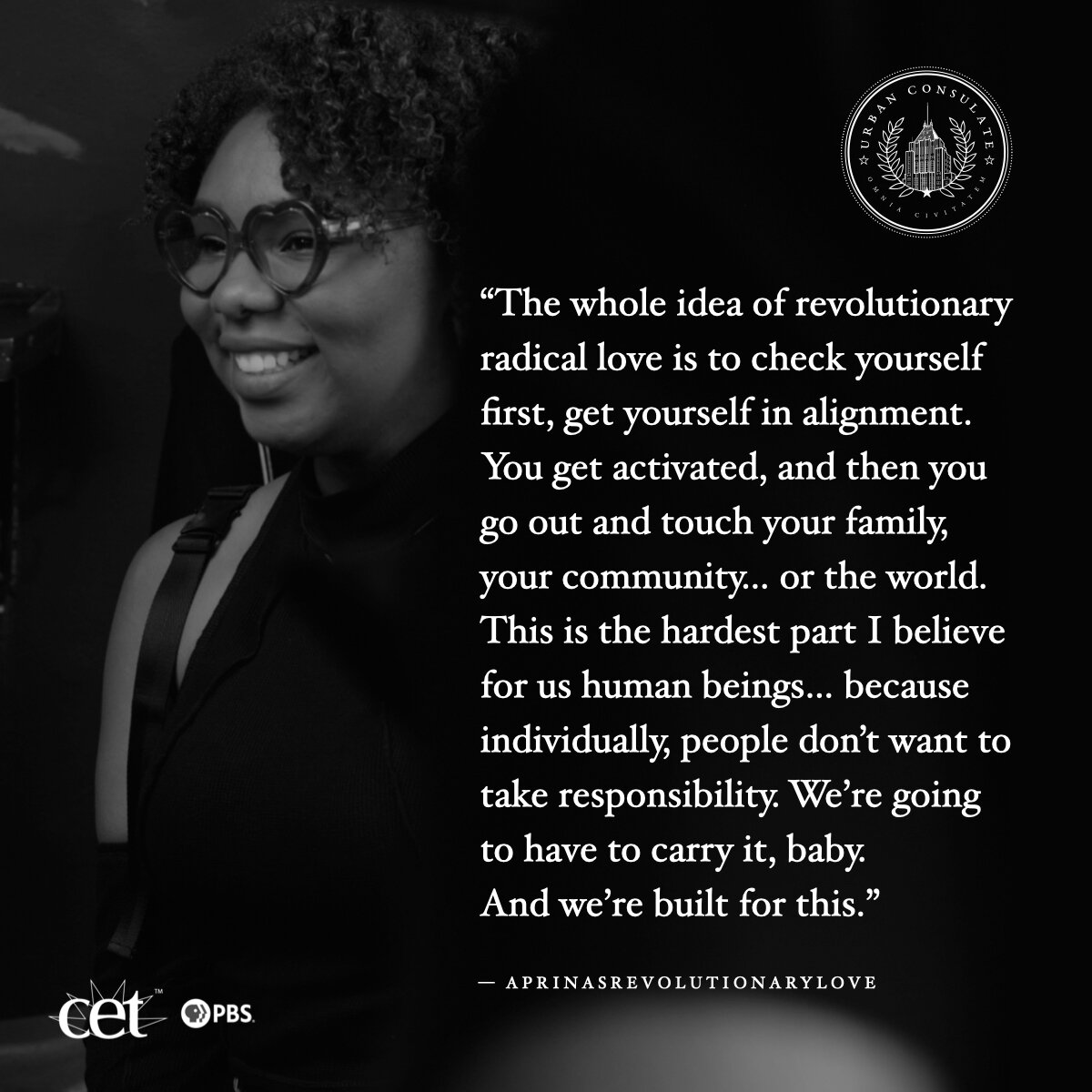
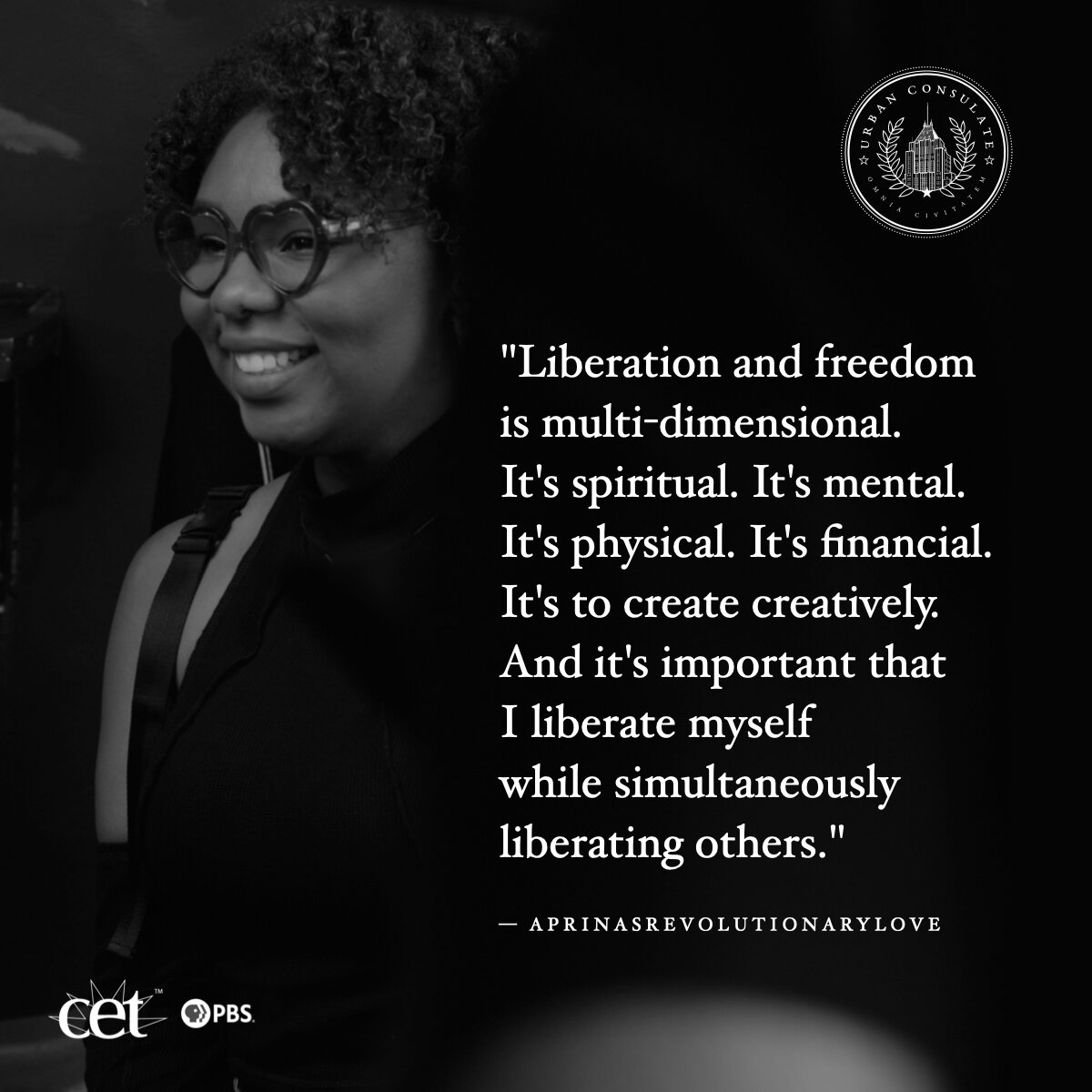
* * *
Urban Consulate brings people together to share ideas for better cities. In Cincinnati, monthly salons are hosted by Naimah Bilal and Megan Trischler in partnership with Afrochine, The Mercantile Library and the Carol Ann & Ralph V. Haile, Jr. Foundation. For past & future conversations, click here.
